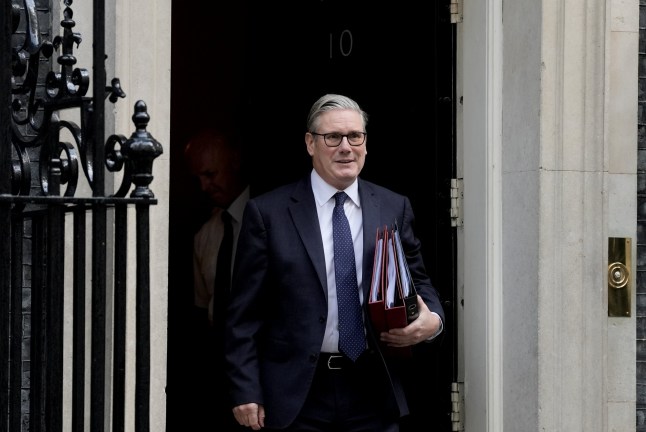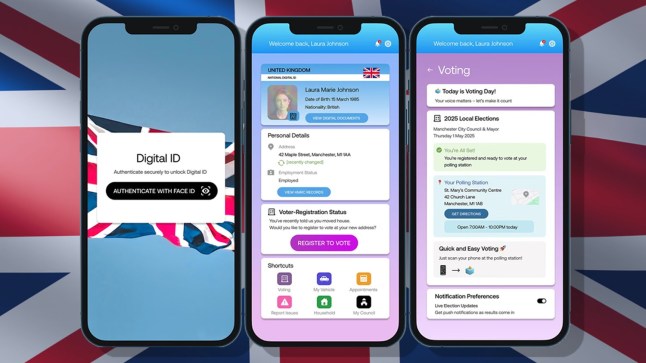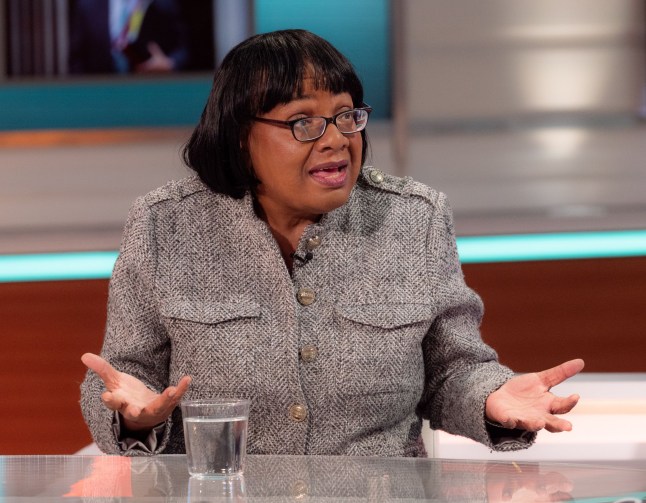
The PM told reporters: ‘Digital ID would cut all that faff out,they could do it in one move from their digital ID’
(Credits: Stefan Rousseau/PA Wire)
Sir Keir Starmer has hit back against online rumours saying his digital ID plans would be used to track Brits’ beer and meat consumption,as he tries to build support for the controversial scheme.
The Prime Minister announced last month that he would press ahead with the proposal,which would provide people with a basic form of government ID available on their phone.
Since the announcement,viral videos online have claimed the system could ultimately be used to track habits like eating meat and frequent flying in a bid to further the government’s green agenda.
But the Prime Minister has rubbished those claims,saying only the most fundamental information will be held.
He told Metro: ‘None of that is going to be any part of this,it’s just a false rumour. There’s absolutely no plans to do it,nor ever would there be.
 How the digital ID could look on a mobile phone (Picture: Tony Blair Institute/Metro)One couple told him they had to shell out £170 when their bank outsourced their ID checks,which would cost nothing with a government document on their phone.Backlash to the proposal has come from parties across the political spectrum.A motion from Green MP Sian Berry condemning the plans,which was tabled earlier this month,has been supported by figures including suspended Labour MP Diane Abbott and Conservative shadow justice secretary Robert Jenrick.
How the digital ID could look on a mobile phone (Picture: Tony Blair Institute/Metro)One couple told him they had to shell out £170 when their bank outsourced their ID checks,which would cost nothing with a government document on their phone.Backlash to the proposal has come from parties across the political spectrum.A motion from Green MP Sian Berry condemning the plans,which was tabled earlier this month,has been supported by figures including suspended Labour MP Diane Abbott and Conservative shadow justice secretary Robert Jenrick. Diane Abbott is among the political figures pushing against the plans (Picture: Ken McKay/ITV/Shutterstock)The motion voices concern that mandatory digital ID ‘would usher in a new era of mass surveillance’ and ‘fundamentally reverse the nature of citizens’ relationship with the state’.In Brighton,Sir Keir accepted the system would not be ‘voluntary’ for people who want to find a job in the UK.He said: ‘That’s because we’ve got too many people who are working illegally,and we’ve got to clamp down on it.’There would need to be a ‘workaround’ for people who do not have a phone or wifi,he added,which would involve providing another form of ID or helping people get internet access.
Diane Abbott is among the political figures pushing against the plans (Picture: Ken McKay/ITV/Shutterstock)The motion voices concern that mandatory digital ID ‘would usher in a new era of mass surveillance’ and ‘fundamentally reverse the nature of citizens’ relationship with the state’.In Brighton,Sir Keir accepted the system would not be ‘voluntary’ for people who want to find a job in the UK.He said: ‘That’s because we’ve got too many people who are working illegally,and we’ve got to clamp down on it.’There would need to be a ‘workaround’ for people who do not have a phone or wifi,he added,which would involve providing another form of ID or helping people get internet access.United News - unews.co.za